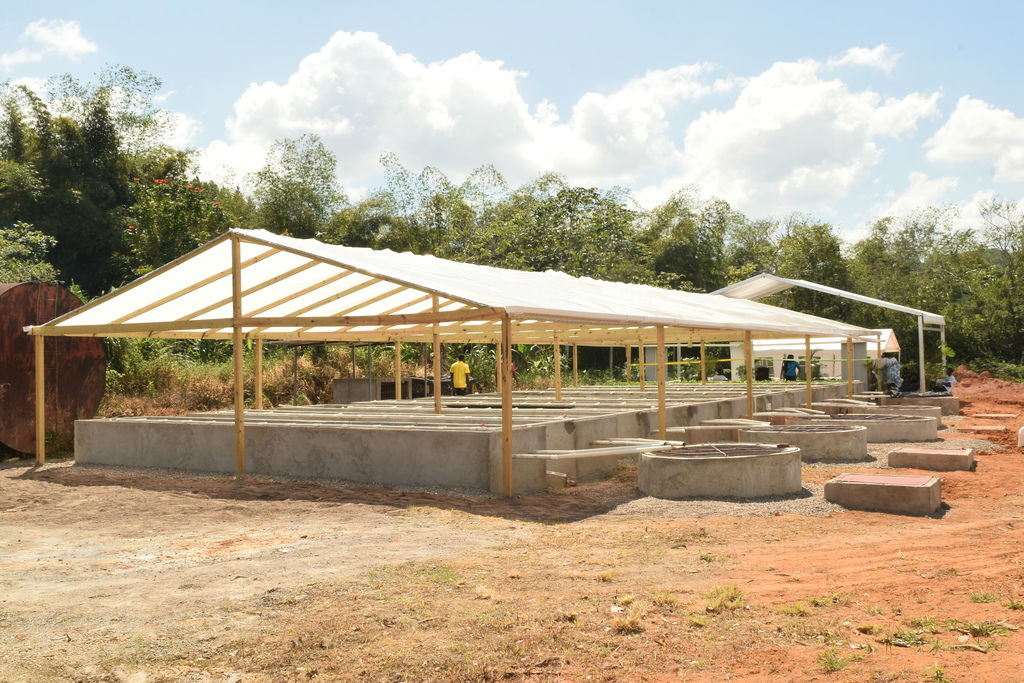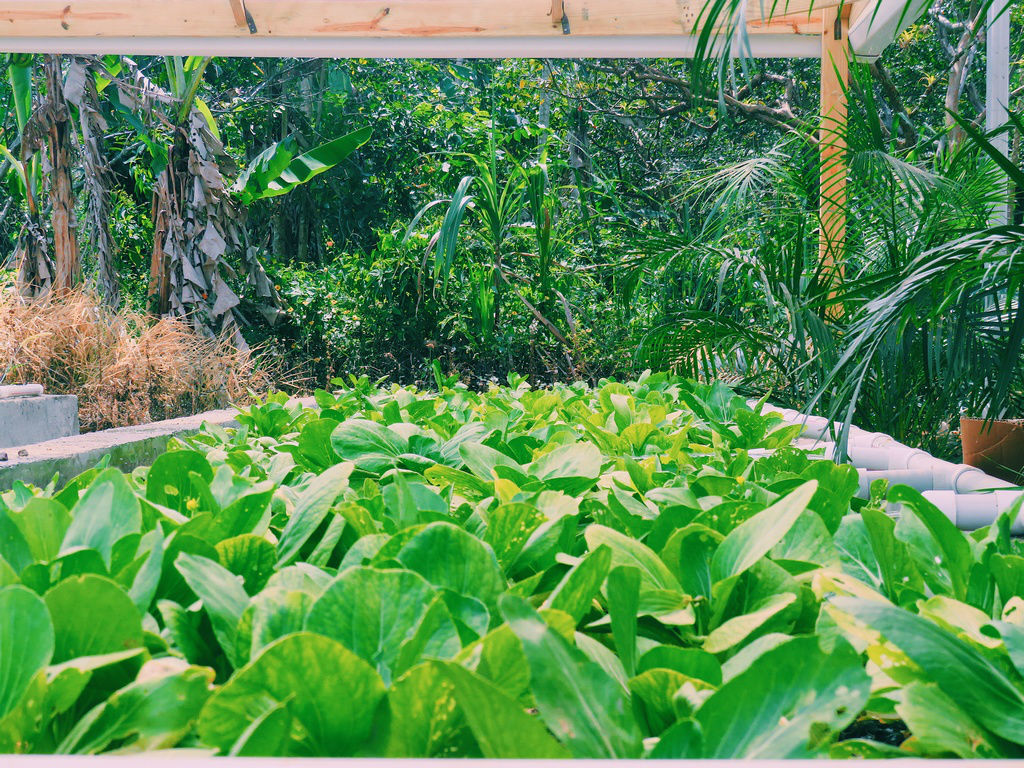The dislocation caused by the spreading coronavirus (COVID-19), was nowhere as marked as in the farming sector in rural Jamaica, where men and women saw their earnings contract and some altogether disappear.
And as their earnings shrank, they also lost the ability to buy necessary inputs to plant again. Inputs like water, without which it is impossible to cultivate new crops.
The intervention of the Adaptation Programme and Financing Mechanism (AP&FM) Project, a Pilot Programme for Climate Resilience (PPCR) has been critical in helping farmers in five Clarendon communities to resolve these issues, stepping in to provide equipment and water for aquaponics farming.
Community Animator Dr Bridgette Barrett explains, “Given that primary beneficiaries of the AP&FM project are farmers and some of them lost produce and markets due to COVID, we decided to assist with water to help to ‘save’ some of the crops that were left. They didn’t lose jobs but lost earnings.”
“Now they will be better able to adapt to climate change and increase their earning capacity.”
In March the communities of Aenon Town, Ritchies, Alston, Johns Hall and James Hill, with a combined population of over 10, 333 persons, were introduced to new aquaponics systems operated by their Community Development Committees.
Aquaponics is an innovative farming technique that combines aquaculture (fish farming) with hydroponics (soilless crop production) into a closed system that is resilient to destructive climate change events.
It is a method that boosts crop production up to 10 times higher than traditionally cultivated plots of equivalent size. It uses 85 to 90 per cent less water and uses no chemical fertilizers or pesticides.
It is low energy consumption providing year-round crop production and uses less labour than traditional farming, making it accessible to individuals with disabilities, beneficial for female-led households and attractive to youth.

Barrett outlines that the AP&FM COVID-19 response project has two components. The first was to provide 97,000 gallons of water to farmers in the Bull Head Mountain region and at the five aquaponics systems and assisting with storage to harvest water. The water supply component is being implemented in three phases.
To date, she outlines, phases one and two have been completed, resulting in the delivery of 49,000 gallons of water. The remaining 48,000 gallons for phase three will be supplied between June and August 2020 to the aquaponics sites weekly to assist with mainly the water levels in the fish tanks for optimal functioning.
“Forty-nine 650 gallon water tanks are being procured for delivery in June 2020 to farmers in the Bull Head region to assist with rainwater harvesting,” Barrett said.
Plants are not yet ready for reaping, as the systems are new, but farmers who have chosen to participate are now looking at the future with hope.
Carmen Dillion, a farmer from James Hill said “Aquaponics is an answer to some of the issues farmers face in plant production. We have not yet reaped any crop but fish and pak choi will soon be ready.”
She and other farmers are hoping that in time they will find a good market including higglers, hotel, canteen and restaurant suppliers, RADA connections, nearby markets and from community members.
The achievements to date, she said include, “learning a new effective method of food production and networking which creates avenues to access funding”.
There are still some challenges to be faced including the lack of financial resources to contract full-time staff and some resistance to change by farmers who are still doubtful about the new farming method.
Dillon says there is also no building facility (storage space, bathroom etc).
Nevertheless, she says that amidst the resistance to change, and the building of the system some farmers understand they will be using less land space.
“Farmers will do less work, have less need of capital but will get quick and high yield of food, she added, also noting, “plants can be grown in any climatic condition throughout the year so yes they think it will help them adapt to climate change.”.
“They also have no need to buy synthetic fertilizer, herbicides and pesticides and aquaponics also involves limited use of water,” she noted.
The farmer outlines that in these ways the farming practice is good for the environment, also including the use of no soil and no soil erosion.
Margaret Lothian from Aenon Town comments, “The Aquaponics system has changed not just my life, but the lives of residents of the community. This is a system that creates job opportunities for several unemployed persons.”
At present the Aenon town farmers have pak Choi, tomato and scallion which Lothian says, “are doing well but owing to repair work being carried out not all grow beds are planted out.”
The farmer says she is looking forward to the community getting a “chance to uplift itself as funds generated will be used to fund other projects.
She added, “This project now attracts funding from outside the community. Interested parties will see what is happening and hopefully invest in the community.”
The aquaponics system is a part of the activities undertaken under the AP&FM to help to reduce Jamaica’s vulnerability to climate change.
Barrett reflects, “the approach had to be different given COVID-19, so there was heavy reliance on procurement being coordinated remotely and working closely with community leaders to coordinate the selection of beneficiaries, verification and delivery.”
She also noted that under COVID, “Some of the farmers lost produce or had to sell at lower prices to recoup some of their costs. The drought being experienced amplified the effects and so it was necessary for the AP&FM project to assist in providing water.”


